Articles and Publications
In this section you can find all the publications of EUROPEUM staff and collaborators. Press releases can be found in the About us section.
Policy paper | Czechia and NATO: Building a more capable, connected and credible European pillar
CEE allies are key to building the capabilities-based, European Pillar NATO needs to enact genuine burden shifting and secure the alliance’s future. Dr Benjamin Tallis shows how Czechia can build on recent progress in defense procurement and increase its influence by prioritising the six elements Euro-NATO needs: core national war-fighting capabilities, logistics, military mobility, strategic enablers, air defence and long-range strategic strike.
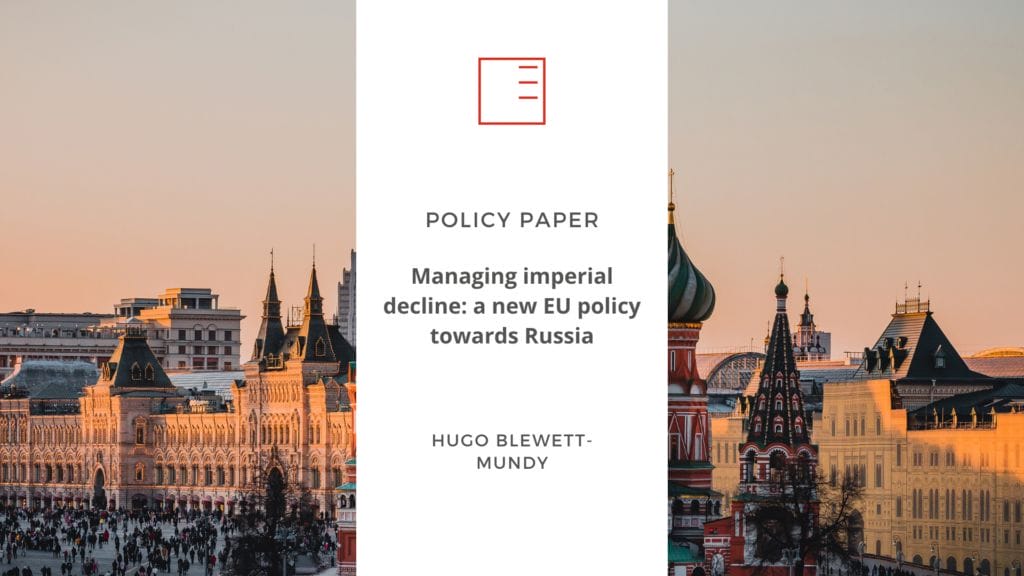
Policy paper | Managing imperial decline: a new EU policy towards Russia
Russia's full-scale invasion of Ukraine in February 2022 has shattered the post-Cold War international order built upon East-West interdependence and cooperation. The European Union (EU) - which had tried to pursue a strategic relationship with Russia after the collapse of the Soviet Union in 1991 - must now adapt to the geopolitical reality of Russian neo-revisionism. Hugo Blewett-Mundy, an Associate Research Fellow at EUROPEUM Institute, identifies four areas where the EU's policy towards Russia could evolve to confront this emerging security situation in Europe.
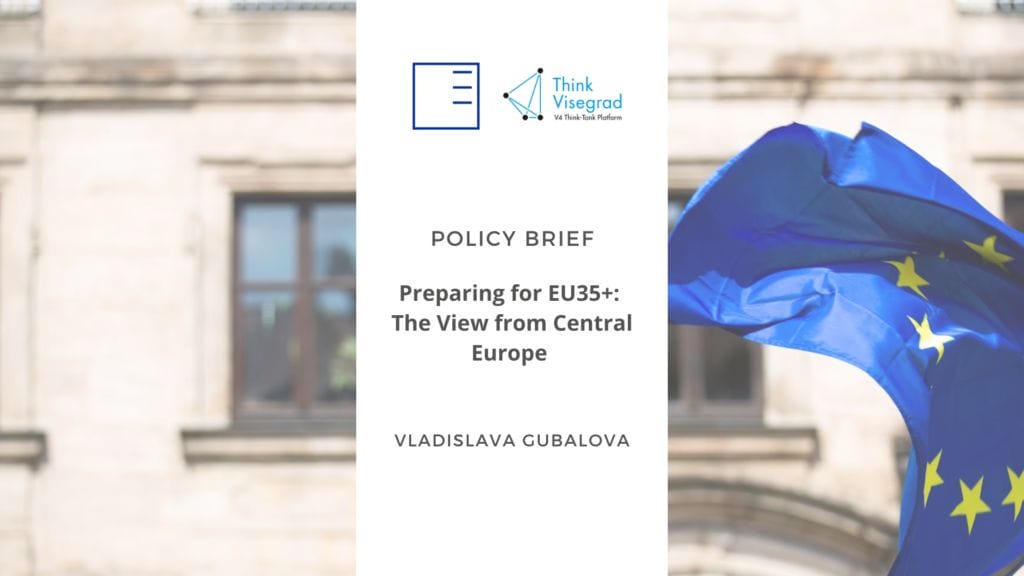
Policy Brief | Preparing for EU35+: The View from Central Europe
Despite the historical support of EU enlargement policy by the Visegrad Four (V4), these Central European states are now faced with the challenge of reconciling their stances with the new realities of the process. As Ukraine and Moldova opened their accession negotiations, the EU seems to be torn on the questions associated with the future enlargement(s) - institutional reforms and changes within the EU budget. Transitioning from economic beneficiaries to potential contributors, the V4 states must evaluate the potential political and economic impacts of new members on both the EU and their domestic levels. Writes and proposes recommendations Vladislava Gubalova from GLOBSEC.

Policy Brief | Were Czech industrial policy interests reflected in EU 2024-2029 strategic agenda discussions?
In light of the recent return of industrial policy to the global and EU stage, this policy brief outlines how Czech interests in this policy were reflected in the debates leading up to the adoption of 2024-2029 EU strategic agenda. First, it strives to define Czech industrial policy interests, outlining two alternative approaches to how they can be perceived. The liberal approach follows the long established consensus, according to which Czechia – as a very open, export oriented economy – should promote above all a seamless Single Market and free trade. Writes EUROPEUM Institute researcher Klára Votavová in her Policy Brief.
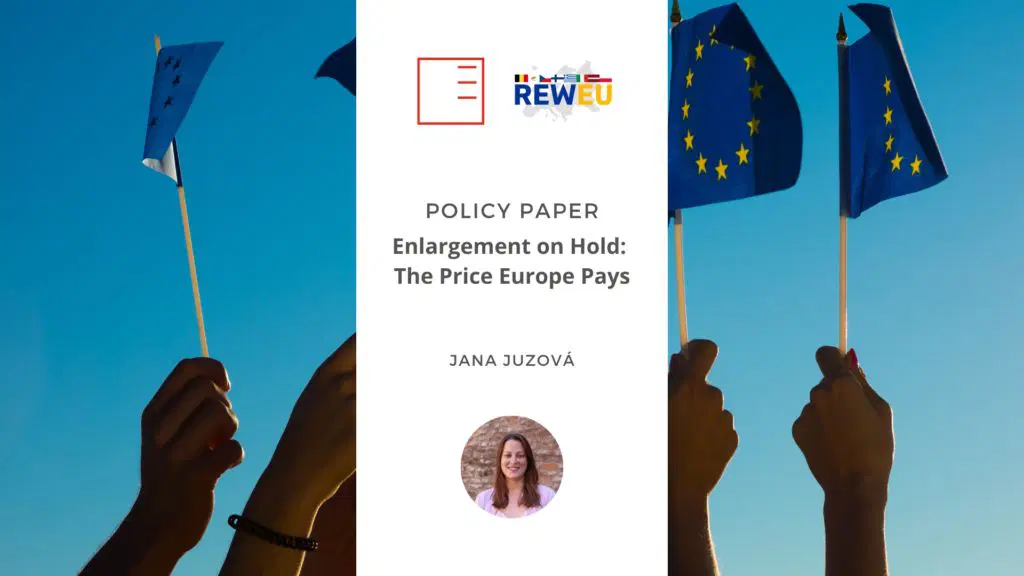
Policy Paper | Enlargement on Hold: The Price Europe Pays
How can the EU enlargement process regain its lost momentum? And how can we learn from previous rounds of enlargement? These questions are answered by a group of authors together with EUROPEUM Institute senior researcher Jana Juzová in a new publication within the REWEU project.
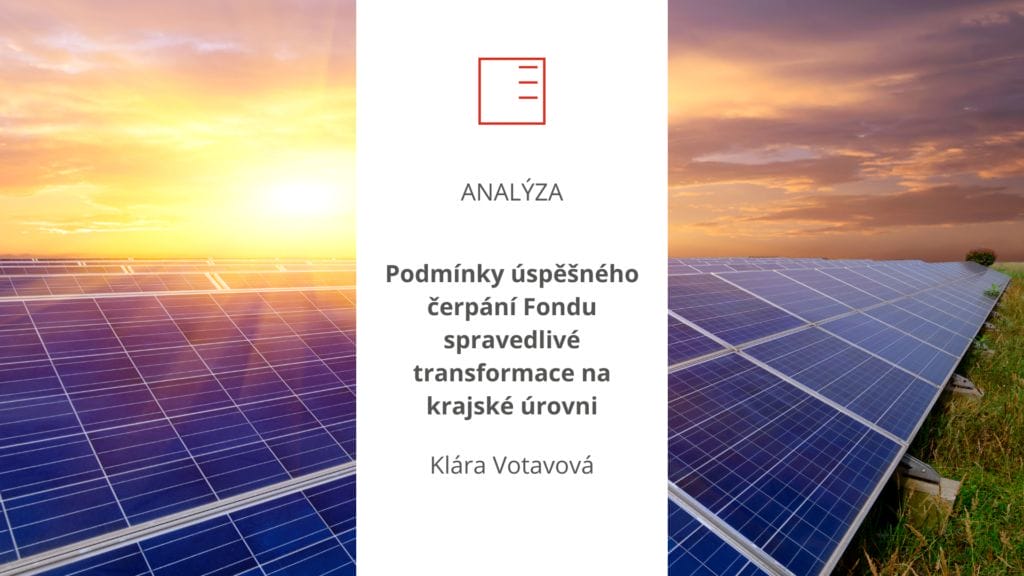
Analysis | Conditions for Regional Preparedness to Draw on the Just Transition Fund
Through interviews with officials and other relevant actors at national and regional level, this research report identifies conditions for regional preparedness to draw on the Just Transition Fund. Researcher at EUROPEUM Institute Klára Votavová compares the situation in two of the three Czech regions that are drawing on the Fund: Moravian-Silesian and Karlovy Vary Region.
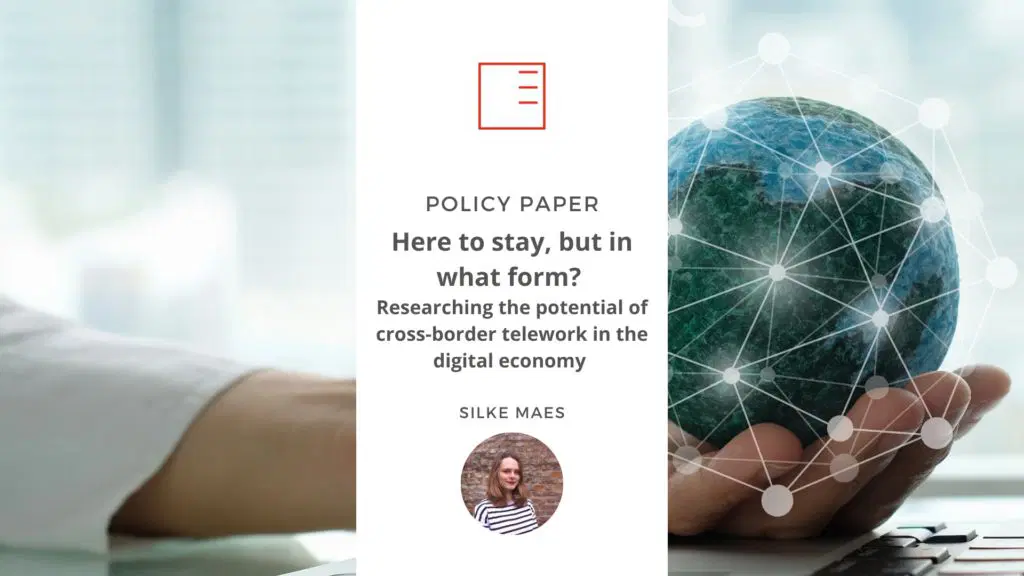
Policy paper | Here to stay, but in what form? Researching the potential of cross-border telework in the digital economy
The rapid uptake of telework, facilitated by digitalisation, has upset a system based on physical presence in the workplace in the EU. Especially since the pandemic, telework has become increasingly prevalent and an integral part of employees’ working and expectation patterns. Our research fellow Silke Maes covered this topic in her policy paper, highlighting the challenges and opportunities telework presents for cross-border coordination.
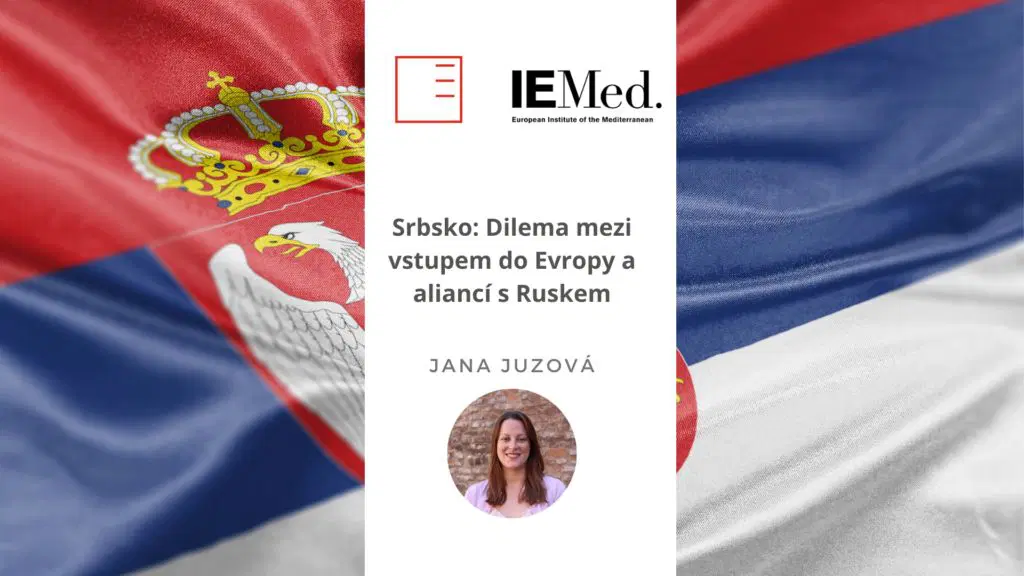
IEMED | Serbia: The Dilemma between European Accession and Alliance with Russia
With Ukraine’s defence against Russia heading toward a stalemate in the second half of the year and increased pressure inside the EU to deliver on its promises to provide the country with needed financial and military support, Serbia’s ambiguous relationship with Russia and the West has been brought increasingly into the spotlight in 2023. The Serbian Progressive Party (SNS), ruling since 2012, and President Aleksandar Vučić have been responsible for continued democratic backsliding and have failed to align with the Union’s foreign policy during Serbia’s lengthy EU accession process, pushing the situation closer towards a tipping point in Serbia-EU relations. Senior researcher at EUROPEUM Institute, Jana Juzová, describes this in more detail in her article for the European Institute of the Mediterranean.
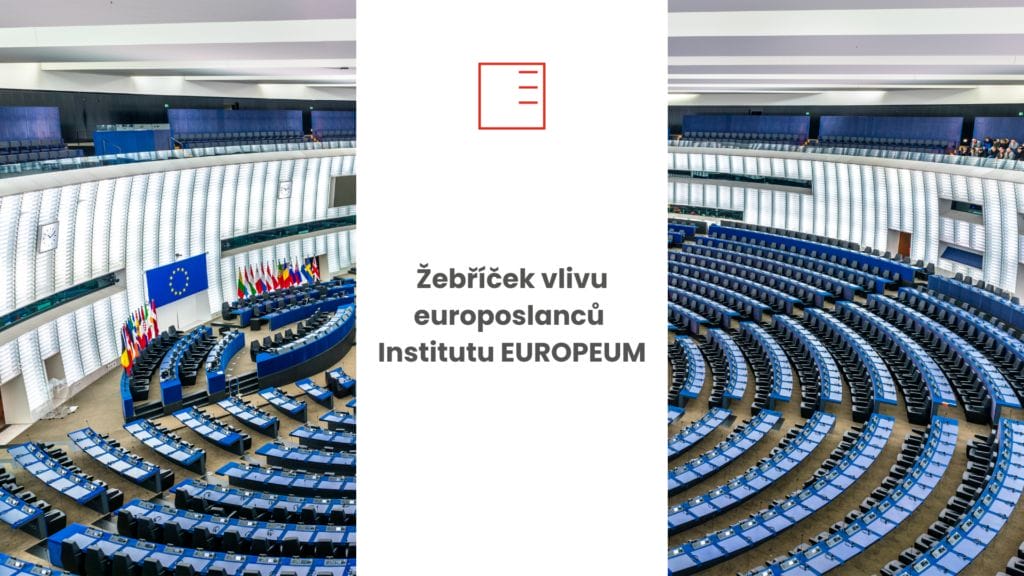
EUROPEUM Institute's ranking of MEPs' influence
EUROPEUM Institute organized a survey among selected experts and stakeholders in European politics to evaluate the performance of current Czech MEPs. The performance of MEPs is difficult to evaluate because there is no completely objective set of criteria that would clearly show this. Therefore, EUROPEUM approached diplomats, officials, academics and other experts from the EU policy environment to compile its own ranking.
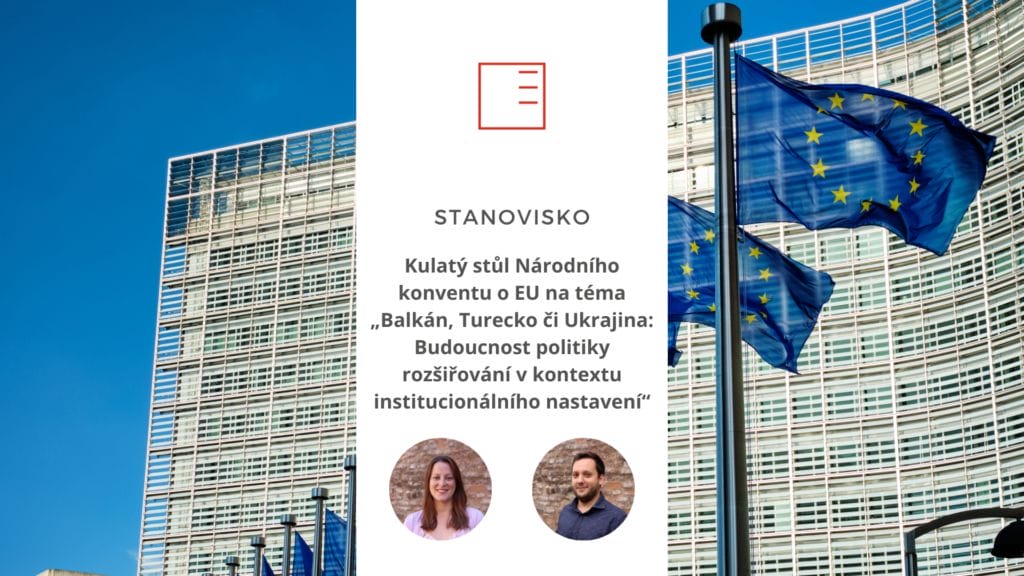
Position | National Convention Round Table on the EU
How to improve the EU enlargement process? How to ensure that the democratising effect of the accession process is sustained beyond the eventual accession to the EU? And are EU institutional reforms a necessary condition for EU enlargement? Answers to these and other questions are offered by the EUROPEUM Institute for European Policy's contribution to the National Convention on the EU's roundtable on Balkans, Turkey or Ukraine: the future of enlargement policy in the context of institutional settings.
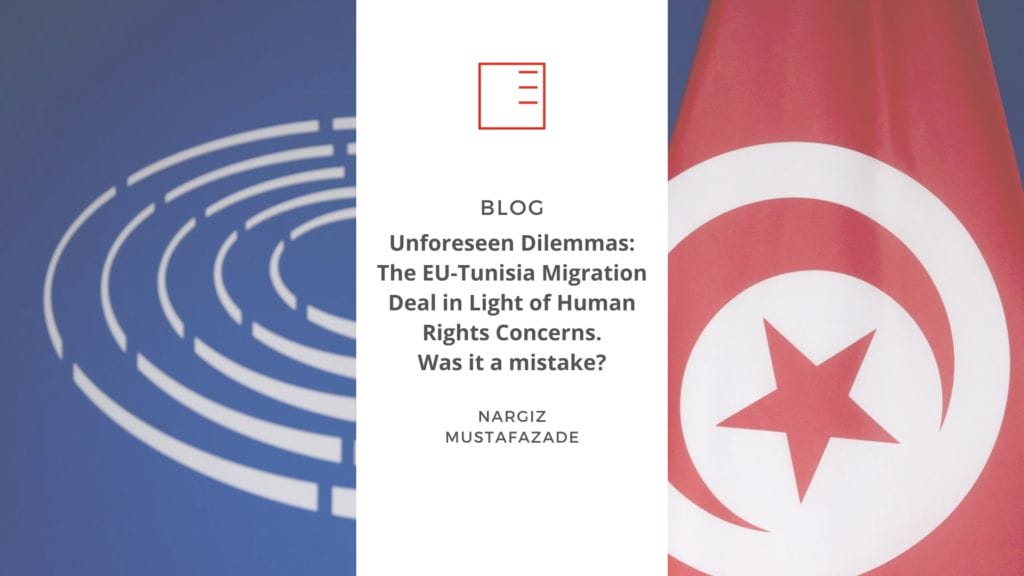
BLOG | Unforeseen Dilemmas: The EU-Tunisia Migration Deal in Light of Human Rights Concerns. Was it a mistake?
Tunisia has become the main exit point for asylum seekers and refugees, especially those from sub-Saharan Africa. The EU, faced with a surge in arrivals to Lampedusa, has bolstered its cooperation with Tunisia, signing a Memorandum of Understanding with President Kais Saied. However, questions arise over the EU's handling of human rights abuses in Tunisia, reminiscent of past agreements with Turkey. Nargiz Mustafazade, a trainee in the Brussels office of EUROPEUM Institute, writes about this topic in her blog.

BLOG | Radio Silence: EU Media Laws in the Hungarian Context
The European Union has passed major legislation to try and secure media freedom and independence in recent years. However, for the state of media pluralism in certain Member States, these efforts have come too late. In the Hungarian context, a pro-ruling party media ecosystem stands well-entrenched in the private and public media sector. Writes our researcher, Henry Barrett, a Fulbright-Schuman Grantee.